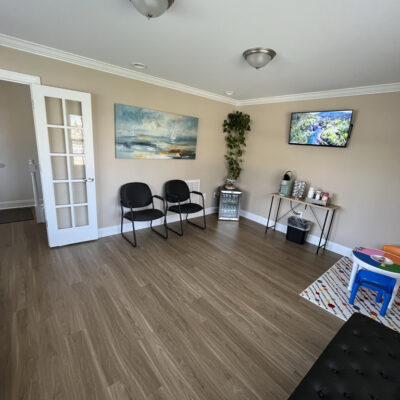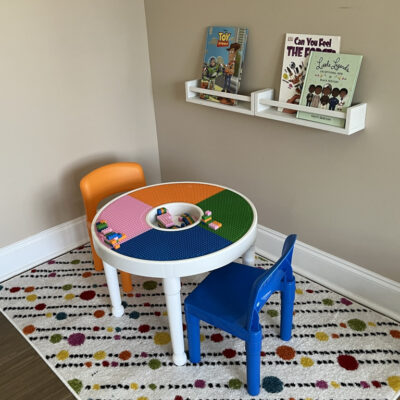Schedule A Counseling Appointment
Contact us at:
- Phone: 336-663-6570
- Email: admin@santoscounseling.com
- Fax: 336-907-3461
- Address: 411 Dolley Madison Road, Greensboro NC 27410
The most significant predictor of successful therapy is the level of connection between you and your therapist. This website can give you only some information about our backgrounds. Let’s talk to find out how well we fit. Contact us and let us help. We’re happy to answer your questions and find out what will work best for you.

Complete The Form To Request A Counseling Appointment
Common Questions About Counseling
What are the counseling fees?
CLICK HERE to read about our fees. Please call us at 336-663-6570 or email admin@santoscounseling.com if you have questions.
How Do I Schedule A Counseling Session?
You can schedule by calling 336-663-6570 to speak with the office admin, email admin@santoscounseling.com, use the contact form located at the bottom of the page, or click here to schedule your appointment using the online secure portal.
When calling the office, please know that if your call is not answered our office will do our best to return your call in 24 hours. The office voicemail in confidential.
Accessibility Between Sessions?
Santos Counseling is not a crisis facility and does not provide emergency services. For scheduling and admin-related questions, clients can contact the front office to receive support. If there is a crisis and you need to reach your counselor, please consult your crisis/safety plan or call 911, crisis services, or any local emergency room. CLICK HERE for a list of mental health resources that you can use in case of a crisis. Please know that counselors are actively engaged in counseling sessions. If you contact your counselor, please allow for 36 hours or a full business day.
How Long Does Counseling Last?
A typical counseling session lasts 50 to 60 minutes. The time can vary depending on your conversation with your counselor. Variance in the length of session time will impact the fee. Your counselor can provide further details on this topic.
The number of sessions depends on the dynamics of what is taking place. For some people, 5 sessions may directly address the goals set in therapy. While for others it may take longer. As you work with your counselor, they will take time to provide education on the length of the session based on the treatment plan.
What Is A Counseling Treatment Plan?
The counseling treatment plan is developed by the client and counselor. This takes place typically during the first session. Your counselor will work with you to understand what brought you to therapy, what you are struggling with, what your goals are, your previous medical history, diagnosis, and more related questions. The counselor writes down goals and ways to achieve the goals in the treatment plan. In essence, the treatment plan will guide the treatment process and can be updated as needed.
What Is The Difference Between A Counselor and a Psychiatrist?
Psychiatrists attended medical school and specialize in medication management when treating patients. Psychiatrists typically provide brief counseling in addition to supporting patients with medication management. Counselors do not prescribe medication and instead are trained to understand the impact of medication in order to effectively support patients with mental health challenges. Counselors engage in psychotherapy, which is a therapy session that typically extends beyond 30 minutes and takes place for a period of time. Both professionals work together to effectively support the patient.
Should I Take Medication?
Our office is here to support you in living your best life. Whether this means that you take or do not take medication. Our counselors take time to build education in understanding the impact of medication and in addition take time to build relationships with medication providers in the community.
I Have Never Talked To Anyone Before. Will Therapy Work For Me?
The short answer is, Yes. Therapy can help people learn to find strength in being open. Strength in knowing that sharing your thoughts and feelings is directly connected to building happiness, success, and inner strength. When you start working with your counselor, they will work with you to genuinely build a relationship that has trust. Our counselors connect on one key area, that it is vital for people to find a good fit. With this said, take your time to shop around for a counselor until you find a person that is a good fit for you.
What is a good fit:
- A counselor that is trained in your area of need.
- A counselor that is culturally competent.
- A counselor that is willing to share their education and background.
I Have Tried Counseling And It Didn’t Work?
At times progress in counseling may fall short simply due to circumstances. For instance, the relationship between the client and counselor not being a good fit. Let’s say that a client worked with a counselor who lacked specific training in the trauma they experienced. It may be likely that progress will take place and reach a wall due to the training of the counselor. In situations like this happen, the best practice is to find a referral.
When you decide to work with Santos Counseling we will do our best to support you by providing full transparency. This means that we do our best to share with you the education of the counselor. We share the counselor’s education, their areas. of interest, and even a picture so that you can identify who would be a good fit. Our counselors hold at minimum a Master’s Degree and engage in ongoing continuing education so that they can effectively support you in living your best life.
What Is The Difference With Talking To A Counselor Versus My Friend Or Family?
Counselors are ethically and legally bound to confidentiality. In addition, counselors are trained to provide treatment that is unbiased, based on their scope of education and training, and do no harm. So what does this mean?
When you work with a counselor you’ll receive support that is free of judgment and criticism. As such, please take time to shop around to ensure that you are working with a counselor that is present for you. Counselors hold specialized training in specific areas such as trauma or marriage counseling. This may differ from the feedback that one can receive from friends and family. Counselors hold your information confidential so that you do not have to feel on edge on who will know what you have disclosed.
The support from friends and family is powerful and certainly has space in counseling.
What Happens In A Counseling Session?
During a counseling session, everything from powerful moments of realization to learning effective ways to overcome challenges take place. You may find yourself in a counseling session reflecting on moments in your life focused on healing and recovering. A counseling session can help people identify healthy and unhealthy habits, positive thinking patterns, and more. The focus is always on you, the client. Your counselor is there to support you learn and grow versus telling you what to do.
How Do I Get The Most Out Of Counseling?
You will have ample opportunities to receive positive changes, grounding moments of clarity, and more during your counseling journey. When working with a counselor, the counselor will work with you to develop goals based on why you are seeking counseling. As you show up for each session, you will notice how counseling can help you achieve your therapy goals.
Are There Resources Outside The Counseling Office?
Yes, our office has an extensive library of videos, blog posts, online courses, and online workbooks aimed to help you outside of the counseling office.
What if I'm in crisis?
If you are in crisis or need immediate assistance, please call emergency services or a crisis hotline. Our counseling services are not intended for emergency situations. We encourage you to seek help immediately if you’re in crisis. Click here for further contact information on hotline and crisis numbers. Please know that with establish active clients of the practice, we will do our beset to support with crisis.
How many sessions will I need?
The number of sessions varies for each person and with what is taking place. Some people find relief with short-term counseling, while others may benefit from longer-term counseling. Our goal is to work with you during the first counseling sessions to establish a treatment plan. The treatment plan will provide direction on the number of sessions.








